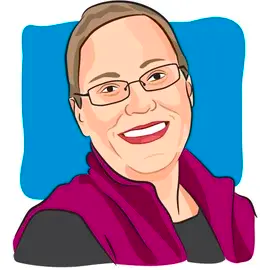Stoneage Ramblings
By John R. Stone
It seems like patriotism is a big thing these days, or has been for the past few years.
My dictionary, an older Merriam Webster, defines a patriot as “one who loves his or her country.”
I can live with that. But I would go a little further. How much does a patriot love his or her country?
Is a person a flag waving, USA t-shirt wearing patriot or a person who loves his or her country enough to actually do something to make it better?
I put our military veterans at the top of the list of people I consider to be patriots. These are people who gave up a portion of their lives, a couple of years or more, and many faced deadly situations because their country asked them to do so.
Others I would put on my patriot list would be people who served in the Peace Corps, Americorps and other nationally supported outreach programs.
These people didn’t get paid much, put their own careers on the back shelf for at least a couple of years, and sometimes risked their lives all so that the image of the United States of America would be projected in a positive way around the world.
They got their hands dirty, they just didn’t sit around in a comfortable room and think lofty thoughts about what others should be doing, they got out and did it themselves.
I think voters are patriotic. An essential part of our democratic process is for the owners of our country, U.S. citizens, to select the leadership they want. They aren’t always going to get what they want, leadership roles go to those who garner the most votes, but they have the right and obligation to express their opinion about who should lead various levels of government in this nation.
I think public officeholders are patriotic if they seek office for the correct reason, that reason being trying to make this country better for all of its citizens.
There are those who could do far better economically in the private sector income wise but who choose public service as officeholders to make our country a place where all can grow and benefit.
I do not consider folks who run to grind axes to be patriots nor do I consider those who seek election to public office as a career to necessarily be patriots. I don’t consider those who seek public office to wield power over others to be patriots. And I don’t consider those elected to office who use the system to their advantage or use their power for personal financial gain to be patriots.
I guess I have a high bar to measure patriotism!
-0-
As we get older it seems we spend more time mourning the loss of people we know.
The most recent in my life and Mary’s is John P. Shea, or JP as most of us knew him.
John actually worked here at the Tribune many years ago for a couple of years in sales before moving on to a bigger, and probably better paying, job at American Solutions for Business.
I bought some cars from JP when he was at Gloege’s and he was a straight shooter. He had a firm handshake, looked you in the eye when he talked to you and did what he said he would do. You could trust him.
He was always one of those people it was a pleasure to be around whether it was in a working situation or after hours. We had some good times over the years whether it was at work, just talking, or after hours. He was just a really good person.
Our condolences go out to Cheryl, David and Patricia along with his brothers, sister and other friends and relatives. Rest in peace, JP.
Thought for the week: “In the end, it’s not the years in your life that count, it’s the life in your years.” Abraham Lincoln
Adblock test (Why?)


